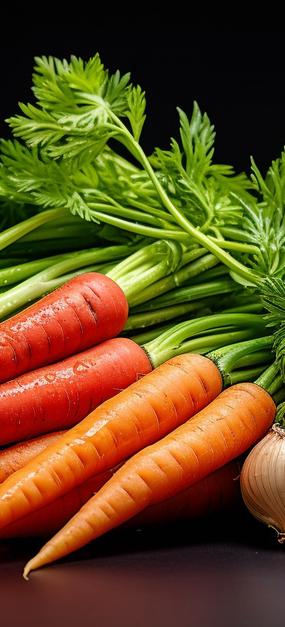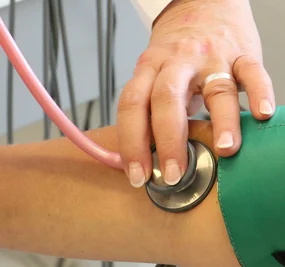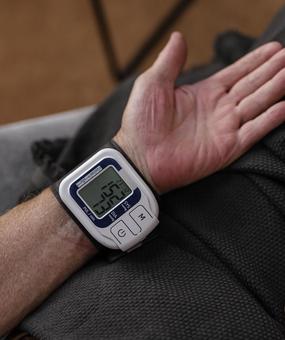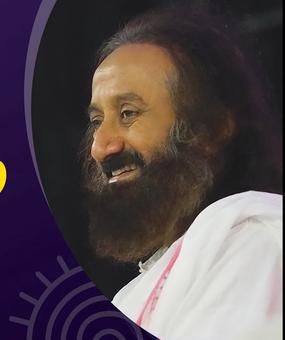What comes to mind when you hear the word ‘cholesterol’? Heart attack? Diabetes? Stroke? If so, you’re not far off the mark. All these are possible risks of having ‘high cholesterol’. High cholesterol, or hypercholesterolemia, is a condition with high cholesterol levels in the blood. So, how do we reduce cholesterol naturally? In most cases, high cholesterol is a warning signal. But first, let’s take a step backward and examine just what cholesterol is.
Cholesterol is an oil-based fatty substance that is essential for various bodily functions. Still, when levels become too high, it can lead to plaque buildup in the arteries, increasing the risk of heart disease, stroke, and other health problems. You need cholesterol to aid digestion and to make hormones, and Vitamin D. Cholesterol also contributes to the structure of cell walls. Your blood moves the cholesterol through your body via tiny packages called lipoproteins. Low-density lipoproteins (LDL) are bad cholesterol, whereas high-density lipoproteins (HDL) are good cholesterol.
What causes high cholesterol?
High cholesterol levels are caused by many factors. Some can be controlled; some can’t. Let’s look at some of these factors and decide if they are something we have power over and, if yes, how to control high cholesterol.
- Unhealthy diet
Eating a diet high in saturated and trans fats can cause an increase in LDL cholesterol levels and is one of the leading causes of high cholesterol.
- Limit foods with cholesterol, such as milk and cheese
- Saturated fat raises LDL. For example, dairy products, baked, deep-fried and processed foods
- Trans fat raises LDL and lowers HDL. For instance, fried and processed foods
- A non-vegetarian diet contains high cholesterol and saturated fats compared to a vegetarian diet
- Lack of exercise / Obesity
Physical inactivity can cause a decrease in HDL cholesterol, which is the ‘good’ cholesterol that helps remove LDL cholesterol from the bloodstream. Regular exercise and yoga for cholesterol can help increase HDL levels and lower LDL levels. Lack of activity can also lead to overweight, increasing the total cholesterol levels.
- Include exercise in your daily routine
- Start your day with some stretches
- Avoid a sedentary lifestyle – take a short walk every 1 hour
- The genetic factor
Familial hypercholesterolemia is an inherited condition that causes high cholesterol levels. People with this condition inherit a gene from one or both parents that causes their liver to produce too much LDL cholesterol.
- Age and gender
Cholesterol levels tend to increase with age, and men are more likely to have high cholesterol than women. From puberty, men tend to have lower HDL than women. LDL often increases as men and women age. Before age 55, women usually have lower LDL than men. However, after age 55, LDL levels are higher in women.
Smoking or high blood pressure can aggravate early heart disease risk if unhealthy cholesterol levels accompany them. This is another reason to learn how to control cholesterol naturally.
It’s important to note that many of these factors are fixable, meaning people can make lifestyle changes to lower their cholesterol levels and reduce their risk of heart disease. Making dietary changes, exercising regularly, quitting smoking, and managing medical conditions can all help improve cholesterol levels. In some cases, medication may also be necessary to manage high cholesterol.
How to reduce cholestrol naturally
Natural ways to reduce cholesterol can help improve overall health and decrease the risk of severe health problems such as heart disease, stroke, etc. It can also help avoid the potential side effects of cholesterol-lowering medications, including muscle pain, liver damage, and other health problems.
- Yoga for cholesterol
Yoga reduces cholesterol levels by addressing various related issues. Regular yoga asanas, pranayama, meditation, and a sensible diet can raise HDL and lower LDL.
Yoga asanas to lower your cholesterol helps:
- Reduce stress hormones
- Stimulate the endocrine system, enabling weight loss
- Build stamina, enabling you to fight a sedentary lifestyle
- Stretch and abdominal massage organs stimulating them to function better and reduce bad cholesterol
- Effectively remove toxins and waste matter.
Chakrasana (Wheel pose)
Benefits of Chakrasana
- Massages the abdominal organs and aids digestion.
- Alleviates constipation.
- Improves liver function, helping to flush out excess cholesterol.
- Improves blood flow & circulation, reducing the risk of heart disease.
Shalabhasana (Locust pose)
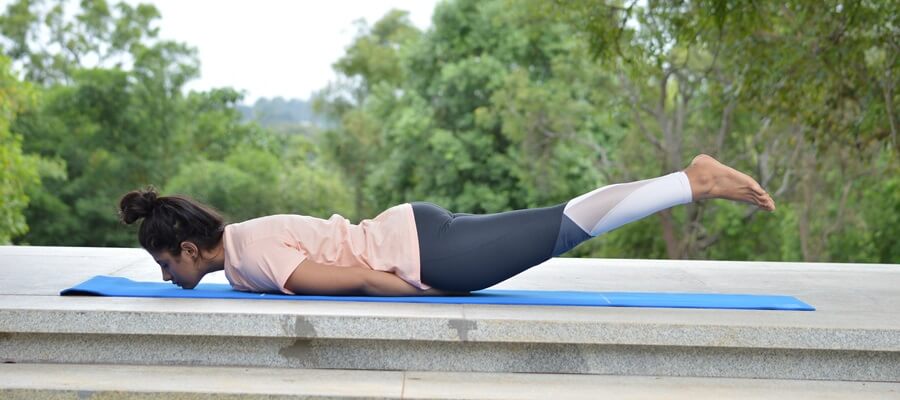
- Burns fat in the stomach, hips, waist and thighs.
- Stimulates the abdominal organs, aiding digestion.
- Aids overcoming constipation. Regular bowel movements can lower cholestrol levels.
Read more about shalabhasana.
Sarvangasana (Shoulder stand)
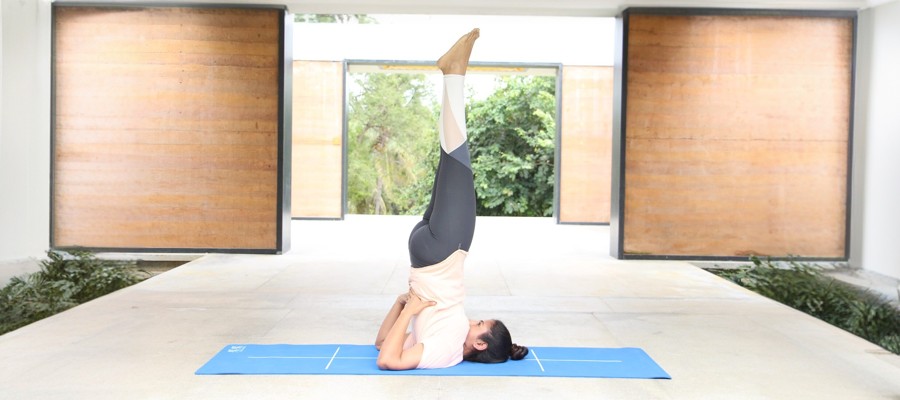
- Stimulates the abdominal organs.
- Improves digestion.
- Boosts the endocrine system.
- Stretches the heart muscles by returning more venous blood to the heart, promoting cardiovascular health.
Click here to know more about Sarvangasana.
Paschimottanasana (Seated forward bend)
Benefits of Paschimottanasana.
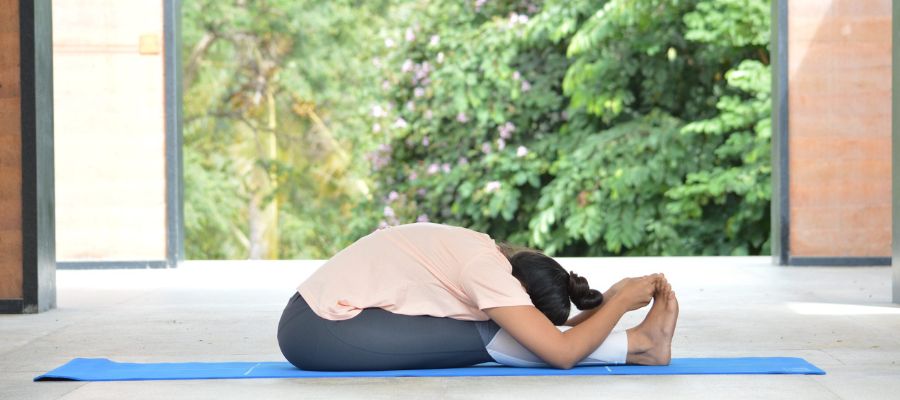
- Stimulates the liver and kidneys.
- Helps fight obesity.
- Gets rid of excess fat from the abdominal region.
- Helps reduce stress and anxiety.
Ardha Matsyendrasana (Sitting half spinal twist)
Click here for How to do Ardha Matsyendrasana.
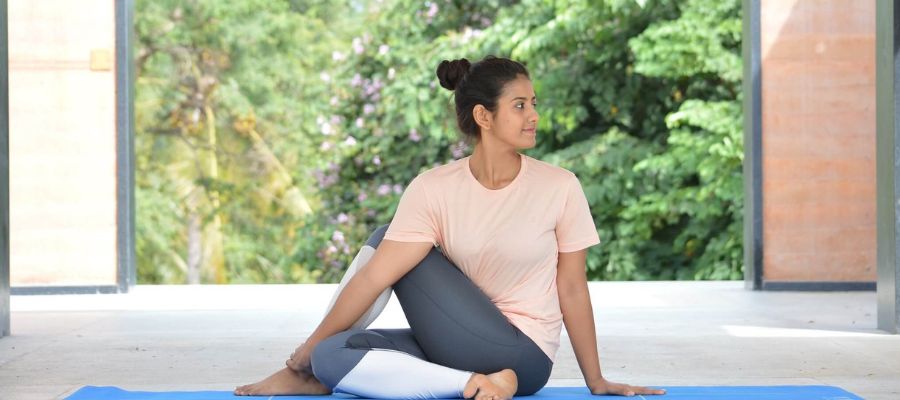
- Massages the abdominal organs
- Stimulates the liver
- Helps in overcoming indigestion
Keep practicing these asanas every day, and you will see benefits of yoga over time. However, yoga asanas are not the only solution to how to reduce cholesterol naturally; breathing with awareness or pranayamas are also an indispensable part of the exercise. You will be amazed at the power of simply breathing in and out!
2. How Pranayamas help in naturally reducing cholesterol
Kapalbhati
Benefits of Kapalbhati
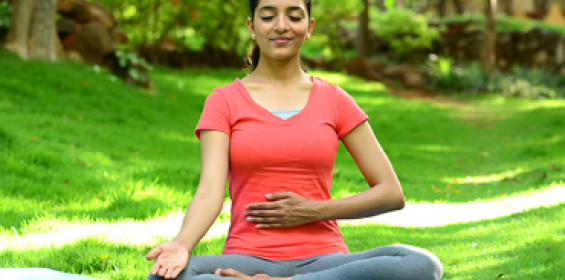
- Increases the metabolic rate, helping to burn fat faster
- Stimulates the abdominal organs
- Improves the functioning of the digestive tract
- Improves blood circulation.
Nadi Shodhan Pranayama
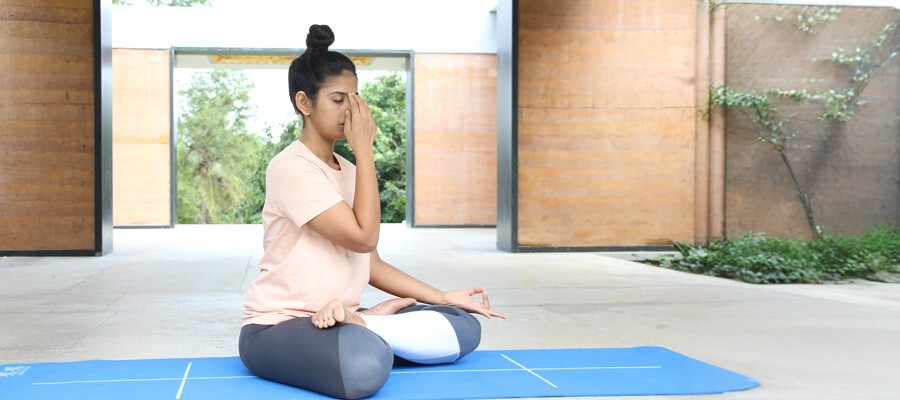
- Clears blocked nadis or energy channels
- Helps release stress and tension
- Boosts metabolic rate, regulating cholesterol levels
- Enables a healthy lifestyle.
Learn more about Nadi shodhan Pranayama
You can supplement your yoga and routines with meditation. The benefits of meditation in relaxing the body and calming the mind are well-acknowledged.
Apart from practicing yoga when learning how to control high cholesterol levels, you must also watch what you eat.
Healthy diet tips for healthy cholesterol levels
A healthy diet intends to increase HDL and lower LDL levels. Many people become disheartened after discovering they have high cholesterol levels. There is no need to be discouraged. Here are some tips on maintaining a healthy diet while learning how to reduce cholesterol naturally.
- Consume more fibrous foods
- Eat plenty of fruit, especially the citrus variety
- Vegetables rich in soluble fiber, like ladies’ fingers, aubergine, turnip, and sweet potato
- Oats and barley bind cholesterol in the intestines and prevent its absorption.
- A handful of unsalted nuts daily can lower your cholesterol by an average of 5%
- Include whole grains.
- Drink plenty of water.
- Avoid excessive caffeine
- Say no to alcohol and tobacco
The intent of the diet is to increase your HDL and lower your LDL levels.
Practicing yoga and leading a healthy lifestyle can also help you stay positive and energetic. Plus, it has absolutely no side effects. The only thing you have to ensure is being regular and pursuing the practice wholeheartedly, and you’ll eventually see the scales tip sooner or later! It also helps develop the body and mind, bringing many health benefits. Even so, it is not a substitute for medicine.
It is essential to learn and practice yoga postures under the supervision of a trained yoga teacher. In case of any medical condition, practice yoga postures after consulting a doctor and a Sri Sri Yoga teacher.



